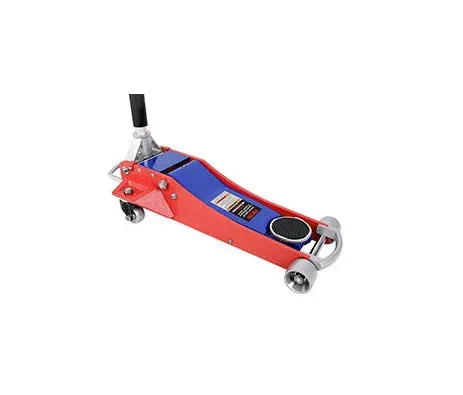Every mechanic’s workshop or garage needs strong, reliable lifting tools. That’s why floor jacks for sale are easy to find, but choosing the right type can be tricky. Two of the most common materials used are aluminum and steel. But what really sets them apart? Let’s break it down so you can make the smarter pick.

Weight: Does Every Pound Matter?
Aluminum jacks are lighter. Much lighter. That means easier transport, faster setup, and quicker storage. For mobile mechanics or home users, this makes a big difference. You can carry one with one hand, roll it in your trunk, or move it around with less effort.
Steel jacks, on the other hand, are heavier. That weight adds strength, but it also means less mobility. Once you place it, you’ll likely leave it there.
➔ If you’re always on the go or working in different locations, aluminum might be the better choice. But for a steady garage setup, steel still wins points for stability.
Strength: What Handles the Load Better?
Let’s talk about strength. Steel floor jacks hold more weight. They’re built tough and don’t flex under pressure. You’ll see many commercial garages using them for this reason—they’re rugged.
Aluminum jacks are still strong, but not as much. They’re perfect for medium-duty work. Lifting a sedan or compact SUV? No problem. A loaded pickup truck or heavy-duty van? Steel might be safer.
Think about what you work on most. Your vehicle type should guide your jack choice.
Lifespan: Which One Lasts Longer?
Steel jacks generally have a longer lifespan. The material doesn’t wear out quickly, and it can handle repeated heavy lifting. They often last for years, especially if well maintained.
Aluminum jacks are strong, but not quite as durable over time. They can develop cracks under extreme use. Still, for light to moderate work, they perform well for years with proper care.
It all comes down to usage. Frequent lifting of heavy vehicles? Steel wins. Light, regular work? Aluminum can serve you well.
Portability: Which Jack Travels Better?
Need to take your tools to the track or a customer’s driveway? Aluminum jacks are ideal. Many models weigh 30–50% less than steel ones. You can toss one in your car, and it won’t break your back moving it.
Steel jacks, though dependable, are bulkier. They don’t travel well unless you’ve got a truck and a strong back.
So, for mobile jobs, lightness beats toughness.
Price Tag: What’s the Cost Difference?
Steel floor jacks tend to be cheaper. The material is more common and easier to produce in bulk. This makes them a budget-friendly option for home garages.
Aluminum jacks usually cost more, but the added price brings convenience. If you value speed, portability, and ease of use, that price might be worth it.
Still, balance cost with your needs. Don’t pay more for portability you won’t use.
Which One Should You Buy?
Here’s a quick guide:
● Light and mobile use = Aluminum
● Heavy, garage-based work = Steel
● Want balance? Some hybrid models use both materials to offer strength and lighter weight.
Compare brands, read reviews, and match the jack to your needs.
Lasting Impressions
Choosing between aluminum and steel floor jacks isn’t just about lifting, it’s about how you work. Consider where you use your jack, what you lift most, and how often. And while you’re shopping, look for options that work well with your setup. Need something for low-clearance vehicles? A low profile air jack might also be worth exploring. Strong tools, simple choices. Just pick the one that fits your garage life best.